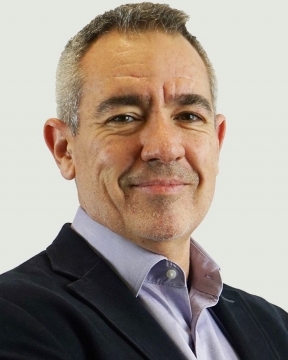 |
Professor of Organic ChemistryDavid Gonzalez RodriguezU. Autónoma de Madrid Madrid, Spain |
Short Bio:Dr. David González Rodríguez (Madrid, 1976) graduated in Chemistry in 1999 at the Universidad Complutense de Madrid. He then joined the Nanoscience and Molecular Materials research group of Prof. Tomas Torres at the Universidad Autónoma de Madrid, where he obtained his PhD “Cum Laude” in 2003. At that time, he made two research stays in the groups of Prof. D. M. Guldi (University of Notre Dame, USA) and Prof. L. Echegoyen (Clemson University, USA). In the period 2005-2008, he joined the laboratories of Prof. E.W. Meijer, at the Eindhoven University of Technology (NL), as a Marie Curie IEF postdoctoral fellow. Dr. Gonzalez-Rodriguez is the author of around 100 publications including patents, book chapters and research articles. He has been the recipient of numerous Spanish and International Fellowships and Grants, among them the Marie Curie Intra-European and Reintegration grants, a ERC-Starting grant, and 2 ERC-Proof of Concept grants from the European Research Council. He has also been awarded with several prizes: the 2010 SUSCHEM Prize, the 2011 Sigma-Aldrich Emerging Investigator Award of the Spanish Royal Society of Chemistry (RSEQ), the 2012 Young Investigator Award from the International Society of Porphyrins and Phthalocyanines, the 2012 Young Researcher Award from the Universidad Complutense de Madrid, or the 2019 Barluenga Medal from the RSEQ Organic Chemistry Division. From 2012, he is also a member of the international advisory board of Chemical Communications. In 2022 he was promoted to “Full Professor” at the Universidad Autónoma de Madrid, where he leads the Nanostructured Molecular Systems and Materials (MSMn) group, comprising around 15 researchers. The group’s research interests focus on the development of new, versatile strategies to improve or create novel functions in organic materials by rationally ordering molecules at the nanoscale. The potential applications of such nanostructured systems are diverse, and focus on optoelectronic π-functional devices, self-healing polymers, catalysis, biomedicine, or nanoporous materials. |
|